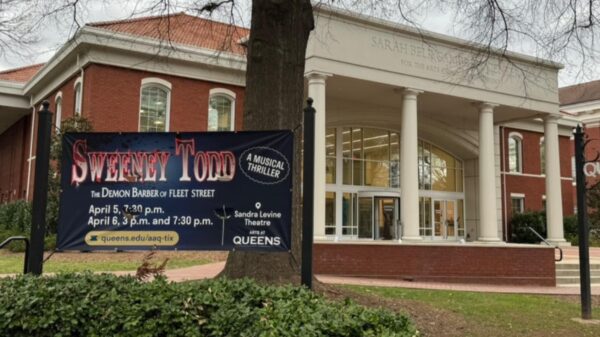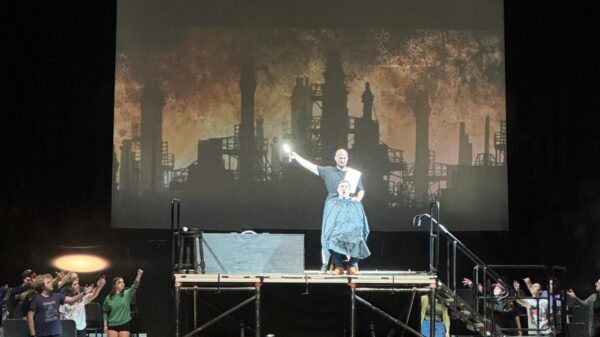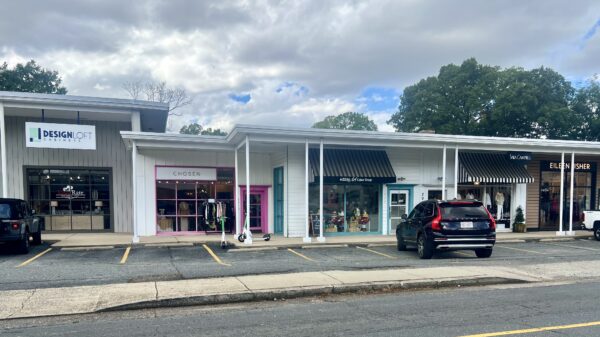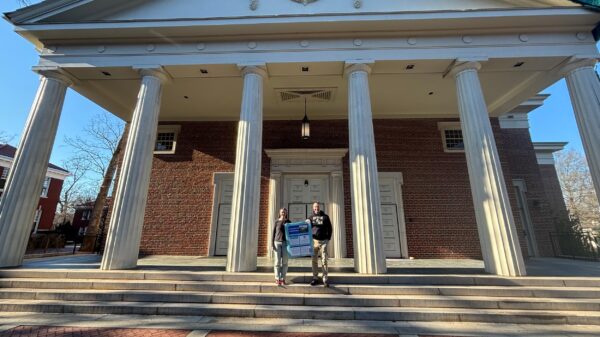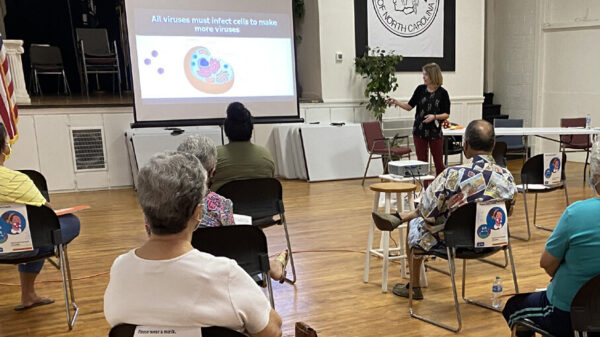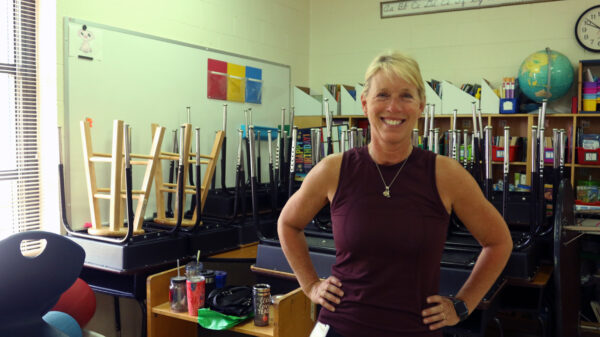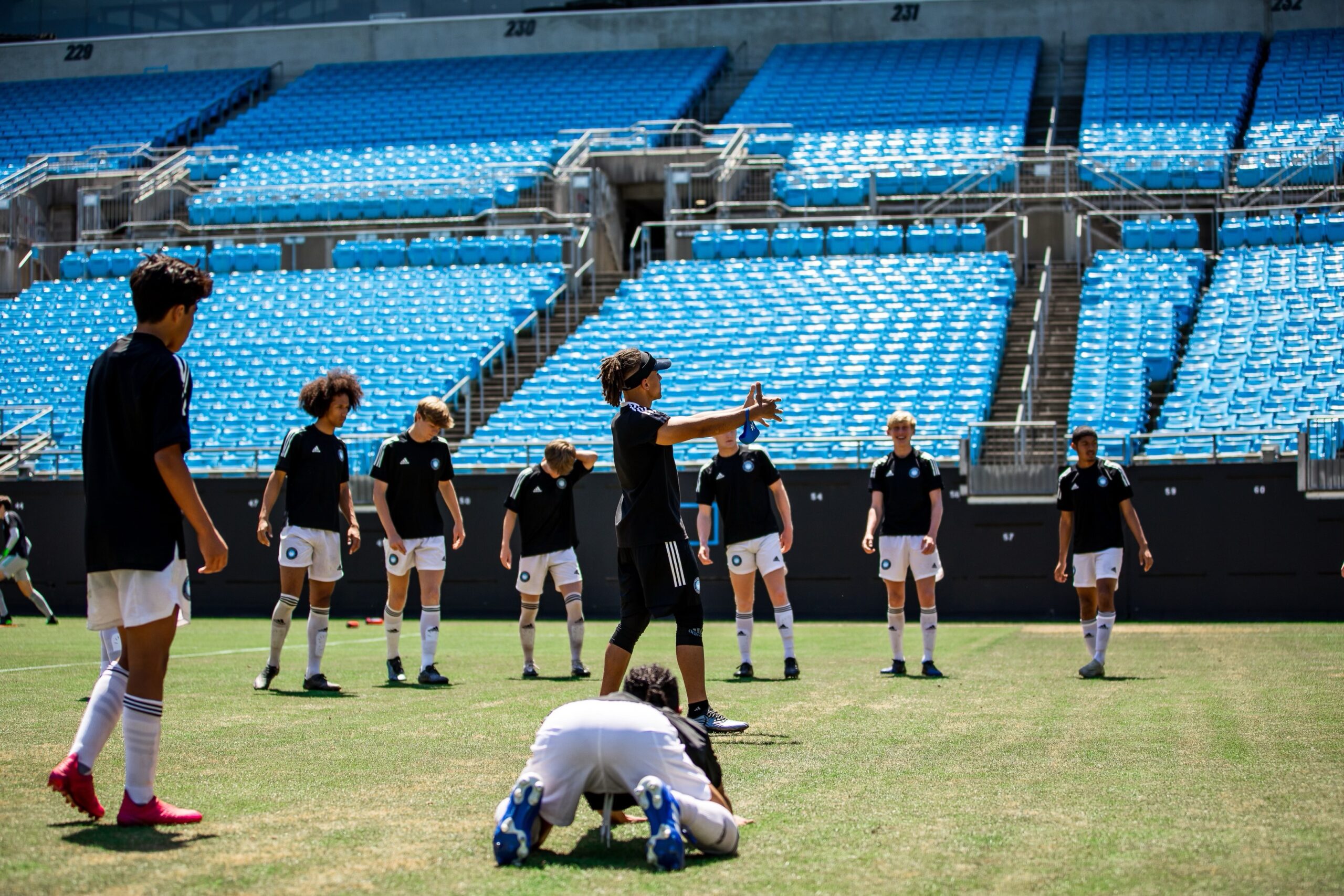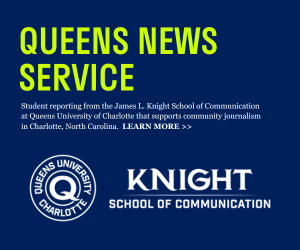In most American sports, college athletics are a gateway to the major leagues. In soccer, they are a dead end. A player’s best chances are at “the academy.”
The arrival of Charlotte FC and its academy provide a fresh look at how young athletes grow up in the world of professional soccer. Conversations with academy leadership and with area youth coaches say it will shape Charlotte in at least two ways.
In the future, beyond professional players, the city could host some of the most talented young athletes in the world, ranging in age from 11 to 18. And the best players already living in this region can now stay in Charlotte – if they’re competitive on a global level.
Professional soccer teams run academies to identify and train young athletes to become pros. The programs provide academic curriculums with teachers, and “home stay” boarding initiatives for players from far away – often, from other countries. They provide transportation to help athletes with financial challenges attend two- to three-week training sessions and matches. For admitted players, the programs are completely paid for by the soccer club.
FC Barcelona, one of the most valuable soccer teams in the world, runs academies in multiple countries, including an American program in Arizona. FC Barcelona even runs short-term camps in Charlotte.
Before the arrival of Charlotte FC, regional clubs focused on youth development within the Major League Soccer academy system. They include Charlotte Independence and the Charlotte Soccer Club. Beyond the clubs, UNCC, Davidson College, Queens University of Charlotte, and area high schools field soccer teams. Many of these soccer organizations say they welcome losing talent to the Charlotte FC Academy because they believe the MLS team will improve their former players.

Photo from Charlotte Independence.
“From my perspective, at least speaking to Charlotte Independence youth coaches and directors, they are thrilled that Charlotte FC is in town,” said Matt Spear, ambassador for Charlotte Independence and former men’s soccer coach for Davidson College. “And they are encouraging and allowing their top players to move into the Charlotte FC Academy system. For them, it’s a job well done. They don’t want to hold back their players from growth and development.” /ima
Previously, coaches had to watch talented prospects leave Charlotte.
“It used to be if they were one or two of those players at the 15 or 16 age group that were getting looked at for the next level for an MLS team, they would be disappearing to Kansas City, to Atlanta, to Orlando, to DC (United). Now, they have the whole pathway in town,” said Jason Osborne, associate head men’s soccer coach and recruiting coordinator for UNCC.
Charlotte FC Academy’s early focus on Carolinas
Devon Manifold, head of performance for the Charlotte FC Academy, said the MLS presence should drive and develop young soccer talent throughout the Carolinas.
“It’s great for the Carolinians, Virginia and the neighboring states in terms of developing youth talent and bringing soccer to this area, which is a very prominent soccer area,” said Manifold. “Some of these players don’t have the same resources. So it’s really an opportunity to branch out throughout the whole of Carolina and into these underdeveloped neighborhoods and untapped potential, which we know is out here in Carolina.
“There’s an opportunity for players to come in and be paired with essentially a host family for their duration at Charlotte FC,” Manifold said. “That could be players who live hours away or don’t have means to transportation.”
How youth soccer differs
Athletes prepare for professional soccer careers much differently than athletes in basketball or American football, said Pat Millen of Davidson. Millen built and managed the first website for US Youth Soccer, worked for FIFA (Federation Internationale de Football Association) for 10 years, and coached in youth soccer leagues.
Players who are competitive on a global level come up through academies, he said, not through colleges and universities.
“I hate to say it, but the role for college soccer, except in some very rare cases, the role for college soccer is to prepare students to have careers that are not going to be soccer,” Millen said. “It’s not a development league.
“The truth of the matter is, if you are going to play professional soccer, college soccer is a graveyard for American soccer players. You cannot afford to come out as a 22-year-old and start a professional career,” Millen said. “Very few college players, there’s a couple… but by and large, if you’re going to college, you’re making a declaration that you’re not going to make soccer your profession,” he said.
Charlotte FC and college players
Manifold said Charlotte FC aims to support college players as much as possible in their ambitions of playing Major League Soccer.
“It’s definitely a difficult gap to bridge particularly in the first couple of years,” Manifold said. “It’s not as easy as bringing in youth talent for a couple of weeks. These are essentially young adults who are making decisions that impact the rest of their lives.”
In the academy system, even at the age of 7, some players may start training in two-to-three-week camps, returning to home clubs for further development. In contrast, American college players are already the age of beginning MLS professionals. They usually lack pro-level experience and skills, and are too old for the academy system.
The primary focus of MSL soccer franchises is not the success of their academies, Millen said.
“Every Major League Soccer team does commit to the academy,” Millen said. “They do put money against it, but it is not their primary business. It’s not. It’s also not lucrative on the other end, even if they do develop a Weston McKennie and sell him to Schalke or Dortmund or Werder Bremen [German professional soccer teams]. It doesn’t mean that they’re going to recap their entire academy investment,” Millen said.

Photo from Charlotte FC.
Charlotte FC, supported by David Tepper, with an estimated net worth of $14 billion, should be in a financial position to support kids who cannot afford to be affiliated with an academy club system that requires expensive travel.
“If you were a person of color, Latino, or if you were from an economically disadvantaged home, you would never be affiliated with a program like this,” Millen said. “When you have Charlotte FC, they will be in a position to create opportunities for kids that can’t afford it.”
-
Elvis Menayese of Cardiff, Wales, is a 2022 graduate of the James L. Knight School of Communication. Elvis majored in multimedia storytelling with a journalism concentration, and in English literature. He was a Knight summer scholar with the news service in 2021, and also competed as an athlete on the Queens soccer team.
View all posts

